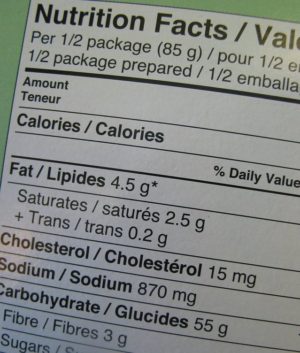Beef sometimes gets the shaft. It is often portrayed as an unhealthy  option or as a “problem causing food”. Remember the ads in the 80’s and 90’s (yes, I’ve just dated myself…sigh…)? “Where’s the Beef?” This is an important question to ask – where is the beef? Why should we give beef a little more credit than we have in years past?
option or as a “problem causing food”. Remember the ads in the 80’s and 90’s (yes, I’ve just dated myself…sigh…)? “Where’s the Beef?” This is an important question to ask – where is the beef? Why should we give beef a little more credit than we have in years past?
Beef – It could be what’s for dinner.
First, extremism in recommendations gives me pause. “Never eat this” and “Always eat that” are phrases I tend to approach with caution. When it comes to dietary habits, it’s all about the balance and meeting nutrient needs. So, instead of examining one individual food item or scrutinizing a single meal, let’s look at the bigger picture and start asking some important questions.
- What are my consistent patterns with food?
- What is going well?
- What could be done better?
- Do I feel that I am balanced?
- How do I feel after consuming X?
- Am I eating intuitively?
- Is there a sense of harmony in the collective nutrition choices I’m making?
These are all questions we should ask ourselves when we think about nutrition. In some cases, we approach the topics of food and nutrition with disordered thinking, which is naturally going to lead to disaster.
The Beefy Benefits
Directly from the Wyoming Beef Council’s site: “A recent study called BOLD (Beef in an Optimal Lean Diet) demonstrated that when adding lean beef to the most recommended heart-healthy diet it reduced levels of total and LDL “bad” cholesterol. The study’s authors concluded that the results of the BOLD study provide convincing evidence that lean beef can be included in a heart-healthy diet that meets current dietary recommendations and reduces cardiovascular disease risk. The improvements in heart-health risk factors seen from the BOLD diets are as effective as those from the DASH and other highly referenced heart-healthy diets (i.e. OmniHeart); many of which emphasized plant proteins. What some people might find surprising is that the Dietary Guidelines for Americans and leading health organizations recognize lean meat as a nutrient-rich food and recommend lean meat as part of a healthy diet” (a statement from Beefnutrition.org).
This is good news. In the past, you probably heard diets high in red meats were associated with higher risk levels for colon cancer. While this may be accurate and valid research findings, the other question to ask is – what are the other habits associated with this diet rich in red meat? Is the diet also low in veggies and fruits and grainy fiber? Was the target population studied also lacking daily intentional physical activity? We could ask a million other follow-up questions and post “what-if’s”, but that’s not necessary.
What is necessary is to understand the benefits lean beef can provide.
- High-quality source of protein. Beef, like other lean protein sources, contains all essential amino acids (those we cannot make endogenously).
- High bioavailability (the degree to which the human body can break down and use the available protein).
- Beef is tasty and can be prepared in a number of healthy ways.
- There are a variety of cuts of beef, many of which are lean options (38 cuts!!).
- Contains iron, zinc and B vitamins. We need these!
“Beef” up your nutrition knowledge here.
Protein Challenge
Lastly, if you’re looking for new ways and recipes that will allow you to incorporate protein into your family’s nutritional habits, the Wyoming Beef Council is promoting a 30-day protein challenge to add protein at every meal and evaluate how you feel overall. Remember – lean proteins provide us with B vitamins – necessary for energy and cell metabolism. If you find yourself low on energy, you may be low in B vitamin consumption (there are other causes of low energy levels unrelated to protein consumption…). For more information on this challenge, visit http://www.wybeef.com and put yourself to the test.
So, go, get your beef on. As with anything else, enjoy in moderation, get and maintain intentional physical activity, and inform yourself of the benefits and nutrition facts of lean beef.



1 Comment
Ann Wittmann · January 27, 2017 at 3:52 am
Love this article and your take on moderation and balance, Erin. Thanks for sharing!